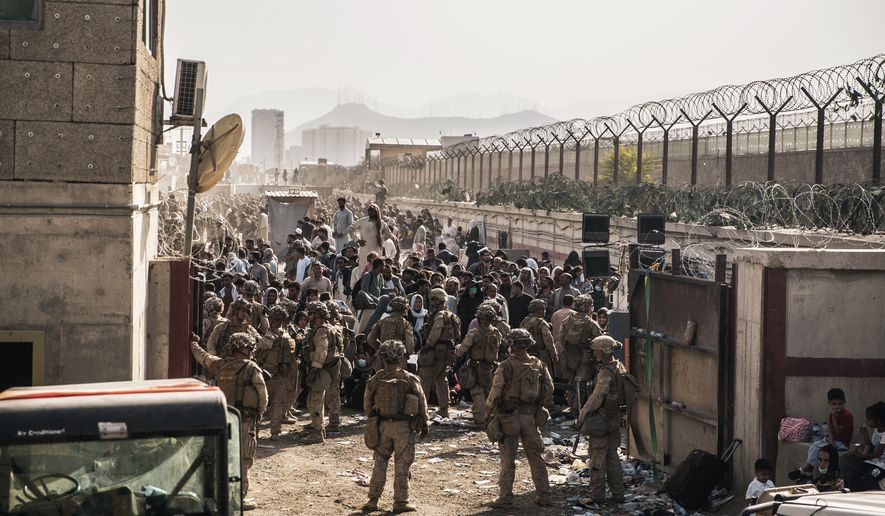The State Department sought to redact “wholesale” public reports by the U.S. inspector general for Afghanistan reconstruction during the Biden administration’s chaotic withdrawal from Kabul, the watchdog said Friday.
Special Inspector General John Sopko said the State Department requested on Aug. 19 that his office remove 2,400 items from publicly available reports “based on unspecified privacy concerns.” The list included such information as the name of former Afghan President Ashraf Ghani and a reference in one report to Chattanooga, Tennessee.
Mr. Sopko called the requests baffling but said his office nevertheless undertook a detailed review of the material that the administration wanted to be removed. He said all but four minor requests were found to be “baseless.”
He called the administration’s requests “a cautionary tale of why oversight agencies need to question an all-too-common impulse to remove information from congressional and public view with little to no basis in fact or law.”
In response, the State Department told Mr. Sopko’s office it would no longer make such requests.
The Biden administration has come under heavy criticism for its botched handling of the withdrawal from Afghanistan and the collapse of Afghan security forces to the Taliban. Latest estimates indicate that several hundred U.S. citizens are trapped in the country.
The inspector general’s latest report said America’s 20-year war in Afghanistan unraveled in less than four months after President Biden announced on April 14 that he would withdraw U.S. military forces by Sept. 11, in keeping with an agreement struck by the Trump administration.
In May, the U.S. curtailed airstrikes in support of Afghan forces. On July 1, the U.S. pulled out of Bagram Air Base outside Kabul.
The Taliban seized the country’s second and third-largest cities on Aug. 12-13. On Aug. 15, Mr. Ghani fled the country and the Taliban took control of Kabul.
The U.S. embassy in Kabul suspended operations on Aug. 31, the day of the last evacuation flight.
“U.S.-funded reconstruction has now paused in Afghanistan, with the exception of some humanitarian aid to address drought-aggravated food shortages and a COVID-19-aggravated health crisis,” the report stated.
Mr. Sopko said the single costliest reconstruction effort for U.S. taxpayers was training and equipping the Afghan National Defense and Security Forces (ANDSF), which cost $89 billion.
“Today, the ANDSF no longer exists,” he said. “Other reconstruction objectives, such as to assist women and girls or to establish the rule of law, are under direct threat from the new Taliban regime.”
• Dave Boyer can be reached at dboyer@washingtontimes.com.




Please read our comment policy before commenting.